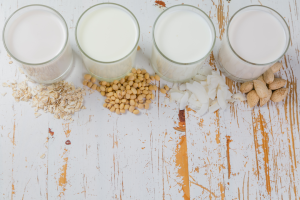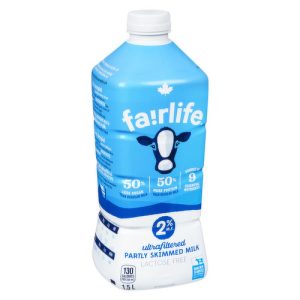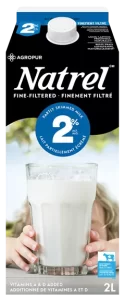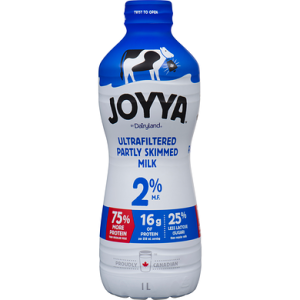,With so many milk alternatives available, it makes a parent wonder what milk is best for young athletes. Whether your family prefers dairy or vegan milk, you should choose your milk carefully. Milk is an important source of nutrients and protein for your growing athlete. Milk often feels like a popularity contest over which milks are tasty and fashionable. This article will help you uncover which milk is best for young athletes to optimize nutrition, health, growth and athletic performance.
Milk and Bone Density
Why is Bone Density Important for Young Athletes?
Young athletes who play high impact sports need strong bones to protect themselves from stress fractures, a common sports injury. Maximizing bone density during youth is important to prevent early bone loss. Our bodies can only build bone density during our adolescent years until our early 20s, when we reach our peak bone mass. Our bone mass remains steady into our 30s but after the age of 40, we tend to start losing bone mass.
Young athletes need strong bones to prevent stress fractures and early bone loss.

Individuals who do not maximize their bone density during adolescence are at a higher risk of fractures, osteopenia and osteoporosis. There are many factors that contribute to a person’s bone density, but females are at the highest risk of low bone mass. Studies have found a strong relationship between vitamin D levels and fractures.
Having optimal vitamin D levels protects against stress fractures.
Dairy Milk Builds Stronger Bones
We know that building stronger bones during adolescence prevents osteoporosis later in life. Dairy milk contains the key nutrients like protein, calcium, vitamin D, B vitamins, phosphorus, magnesium and zinc that are needed to build bones.
Children and youth who drink dairy milk consistently, build stronger bones.
Children and youth who drink dairy milk consistently have higher bone density, than children who avoid drinking dairy milk. This study in The American Journal of Clinical Nutrition compared 200 kids who drank dairy milk regularly, to 50 kids who didn’t drink dairy milk for a period of at least 4 months during their childhood. The kids who didn’t drink milk regularly were shorter and had lower bone density, than the children who drank milk regularly. This study in the Journal of Pediatrics, also found that children with cow milk allergy had lower bone density than children without a dairy allergy.
Vegan Milks and Bone Health
There are many vegan milk alternatives available such as almond, cashew, coconut, flax, oat, pea and soy milk. The key nutrient in vegan milks for young athletes is protein. Ideally, a milk has at least 7g of high quality protein, which means it has all the essential amino acids. Look for a vegan milk that is also fortified with vitamins and minerals including calcium, vitamin D and phosphorus. These are the key nutrients needed to build bone density in adolescent and teen years.

Milk needs the right combination of protein, calcium, phosphorus and vitamin D to build bone density.
Although most vegan milks are fortified with calcium, they are missing protein and key minerals needed to build bones. Vegan milks like almond milk, coconut milk, rice milk and oat milk do not contain protein, so they do not help build strong bones during adolescence to teen years. Pea milk is the only other vegan milk that delivers 8g of high quality protein per serving. However, it is not fortified with calcium, vit D or B12, so it does not help to build bones.
The Best Vegan Milk for Young Athletes:
Milk needs to have at least 7g of protein to build bone density and muscle. Soy milk is the best vegan milk for young athletes because it is the only one that contains 7g high quality protein, calcium, vit D, B12 and phosphorus.
Soy milk is the only vegan milk that contributes to strong bones.
Milk and Muscle Mass
This review in the Journal of International Society of Sport Nutrition concluded that drinking dairy milk spikes your muscle building, leading to higher muscle mass.
If you drink a cup of milk after a workout, you build more muscle.
In fact, if you drink a cup of milk after strength training workouts, you build more muscle over 3 months, compared to if you don’t drink milk after your workouts. It doesn’t matter if you have skim milk, whole milk or even chocolate milk after workout, they all build muscle equally. Dairy milk post workout builds the most muscle compared to sport drinks or soy milk. To build muscle and improve recovery, have milk or chocolate milk right after your workout.
Want to know more about how to build more muscle? Check out my blog: 10 Steps to Gain Muscle
Milk and Growth
We all know that milk makes strong bones. Did you know there is also strong evidence that dairy milk helps kids grow taller too?
Researchers wanted to prove whether adding dairy to kids’ diets really makes them grow taller. A large review of twelve randomized controlled trials tested if adding dairy to the usual diet of kids has an effect on their growth. They found that adding 1 cup of milk per day to kids’ diets makes them grow an extra 0.4 cm per year. Kids who are shorter and teenagers tend to grow even more than this, when they drink milk. This means that drinking one glass of milk a day over 10 years will help kids grow an extra 2 inches! Researchers did note that milk helps you grow more than cheese, yogurt or ice cream.
Drinking dairy milk makes kids and teens grow taller.

Kids grow an extra 0.4 cm taller or more per year, for every 1 cup of dairy milk they drink per day!
This conclusion is supported by another study in the American Journal of Clinical Nutrition that noticed that the more a child drinks vegan milk, the less they will grow. They found that kids who drank 3 cups of vegan milk over 3 years would grow 1.5cm less than kids who drank 3 cups of dairy milk. There have been many observational studies on children with a cow milk allergy that noticed these kids don’t grow as tall and are deficient in key nutrients.
Milk and Health
Canada’s Dietary Guidelines that inform Canada’s Food Guide, recommend eating low fat dairy such as milk and yogurt as the Foundation to Healthy Eating to promote heart health and for their key minerals like calcium, magnesium and potassium.
We know that the Mediterranean Diet has many health benefits and it includes a variety of fruits, vegetables, whole grains, legumes, fish, nuts and dairy.
Dairy milk, soy milk, flax and almond milk all have positive health effects.
Soy milk has cardiovascular and anti-inflammatory benefits, due to their antioxidant properties and omega 3 fat content. Flax and almond milk also boast some of these health boosting ingredients.
Controversies with Dairy
There are a number environmental and health concerns with dairy products. The main concern today is that cows produce a lot of greenhouse gas emissions. There are some health concerns with dairy due to practices in the US, but these practices are not permitted in Canada.
Cattle and the Environment
Dairy cows create more greenhouse emissions than alternative milks and are the second highest food source of greenhouse emissions. Large scale farms with cattle are bad for the environment.
Organic dairy farms produce less emissions than conventional dairy because they:
- Do not use synthetic fertilizers
- Transport the cattle over shorter distances
- Use organic pasture
Dairy and Hormones
- Canadian dairy cows are not given growth hormone. Organic milk in the US is also free from added growth hormones. However, bovine growth hormone (rBST) is a synthetic drug made by Monsanto and approved for use in the USA for dairy cattle to increase milk production. The use of rBST in dairy farms is banned in Canada, Europe, Australia, New Zealand, Japan, Israel and Argentina. A small amount of US dairy products may be imported into Canada since the new NAFTA was signed in 2019. To identify Canadian dairy products, just look for the little blue and white cow symbol (that usually says “100% Canadian Milk”.
- Canadian dairy cows are not routinely given antibiotics. Dairy cows only get antibiotics if they get an infection. Farmers cannot administer antibiotics to the entire herd. When a dairy cow is given antibiotics for an infection, their milk is either dumped or given to a calf. When a dairy cow is given antibiotics due to an infection, the farmer will “pump and dump” her milk.
- Dairy has naturally occurring hormones. There are naturally occurring hormones in dairy including growth factor 1 (IGF-1), prostaglandin, estrogens and progesterone and bovine somatropin (BST). Researchers don’t know whether these naturally occurring hormones that support growth in children, may have a bioactive effect in humans or on our general health.
If you are Lactose Intolerant
You have lactose intolerance, if you feel stomach upset, bloating, gas and diarrhea 30 minutes to 2 hours after drinking milk or a blizzard. Lactose intolerance is pretty common and it just means that you have a hard time digesting lactose. You can minimize symptoms by choosing dairy products that are lactose free like lactose free milk, yogurt and cheese. You can also use Lactaid digestive enzymes when you have a milkshake or ice cream.
What is Ultrafiltered Milk?
Ultrafiltered milk is a filtered dairy milk that has removed water and sugar. The remaining ultra-filtered milk is lower in sugar and higher in protein and calcium. What I like best about ultrafiltered milk is that it is lactose-free.
My personal favorite milk is ultrafiltered dairy milk, because they have extra protein and calcium and they are lactose free.



Diet Matters
Whatever milk you choose, having a varied diet will help you to get key minerals and vitamins. Be sure to include a variety of whole grains, vegetables, fruits, legumes, nuts, eggs, fish, lean protein and seeds. Eating enough and fueling your training is just as important as your diet. Studies have found that low vitamin D levels increase your risk of stress fractures.
Take 1000 IU vitamin D to protect and build strong bones.









2 Comments